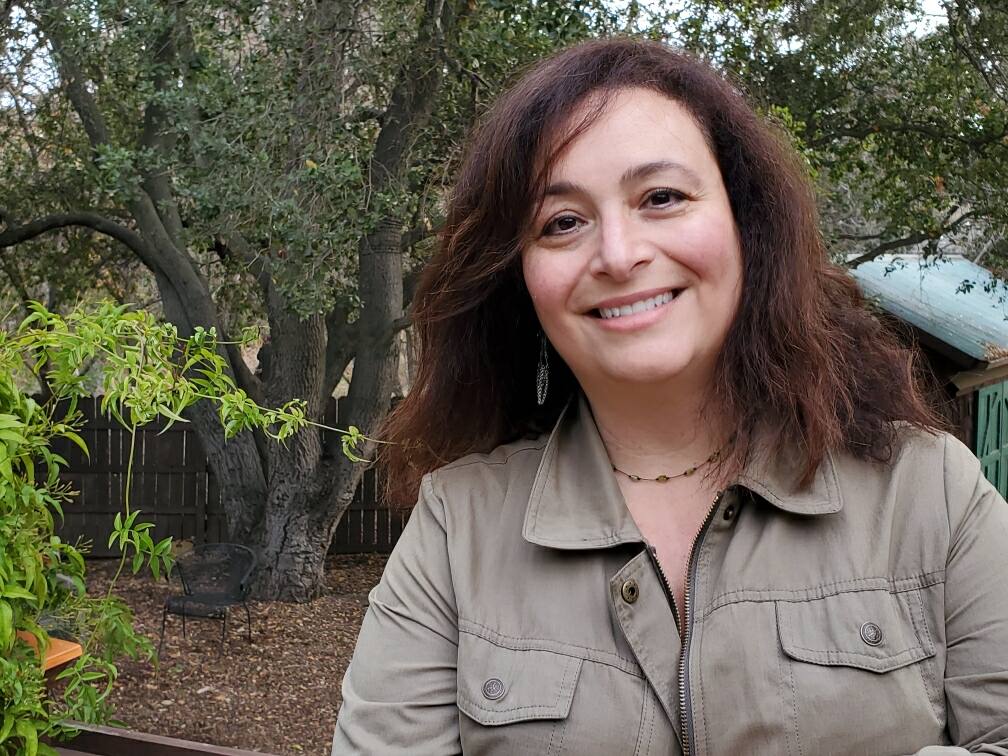
At Cathedral Grove: A Treatise on Vanishing by Deema K. Shehabi
.
Afternoon dialects beneath a redwood canopy: two children skip ahead; their feet
grind the ground, crushing ferns, tearing tenebrous skulls of leaves. They giggle, while a vanishing world lies ahead of them. The spot where the sun abandons is where the light hangs briefly beneath a shoulder blade, then spreads.
Once, I was the child flattening her ruffled dress around edges of a scalloped fountain. In the water: yellow rose petals my mother had plucked bit by bit, petal to stem, stem to petal, their random outline shaped a house at the corner of the fountain, where a sun hid behind a window draped with sky.
When I turned 12, I braided photos of Sabra and Chatila into my hair and left them there to fall out; nothing wafts sickness like the smell of massacre. Now in my midlife, I know that Palestine’s resurrection is inextricably tied with Earth’s.
What is the root of the root of the root of your being, Rumi’s Masnavi asks.
There are those who tread the Anthropocene Age with blinders, yet a million species are close to extinction. Do we already intuit our absence from this hushed place?
My mother stands on the stairway reading Ayat el-Kursi to my father as he walks out the front door. I stand behind her and don’t recall whether he turned his head to look back. Her voice, electric and blue like cigarette smoke, deep like a scar. Her small, perfumed hand waving circles in the air as she prays for his safe return. My father around whom I orbited until his death. Before earth: porous yellow sponges in water musk, myrrh for flight, cool water over his head, chest smoothed over with muslin cloth, throat tied with dandelions, heaps of light receding from his blue-lit face.
Hours, days, months, years. There’s no sense in counting the hours, you said. Time is measured in bark, cambium layer, sapwood, heartwood. There are those who tread the Anthropocene Age with blinders, yet a million species are close to extinction. Do we already intuit our absence from this hushed place?
O’ January morning, creek gurgling, like the fountain of my childhood. After rain, the earth is green, overturned by ardor, open and receiving. I step on to the balcony, and my son follows speaking to me about Keppler, a planet like ours he says, and I wonder if all children are unwittingly post-earth in their imagination. When the mind enters Vernadskian time, vanishing moves past intuition and into reality.
◊
Photograph by Omar F. Khorsheed
All audio, text and images are under copyright © Neelum Films LLC
You must be logged in to post a comment.






Leave a comment